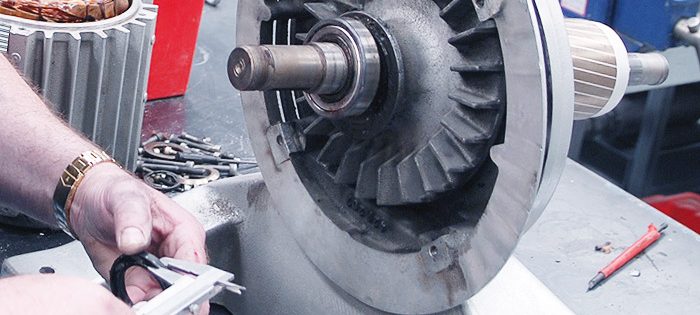Re-Manufacturing
One of the key areas that sets us apart from other medical gas installation companies is our ability to work with old or tricky gas systems. Our engineering skills give us the edge with innovative problem-solving solutions to help get old systems up and running efficiently and safely. Our ability to re-manufacture vital parts is one crucial element in this process. Re-manufacturing involves engineering old and broken parts to bring them back to full working condition, it is an extremely useful, skilled technique that our engineering team at Midland Medical Solution are very proficient at. Many medical gas systems were installed many years ago, and some of the parts that make those systems viable are no longer in production.
Two common parts that are unobtainable from new are the Rietschle SK blowers and Rietschle vacuum. Yet having to replace an entire medical gas system because a component is obsolete is expensive and wasteful. We re-manufacture and refurbish these parts, and hold them as stock in our warehouse so that they are available when needed. This foresight means that older systems can carry on being used without the need for a total refit.

We have invested in re-manufacturing, firstly by investing in the equipment and facilities to ensure that we have the best machines and tools to be able to carry out the work, and secondly in our team, ensuring that we have highly skilled engineers who excel at carrying out this type of work. Re-manufacturing saves money. Many NHS trusts are dealing with difficult financial times, and being able to spend their budget wisely, allows the money to go where it is most needed. Our skill in being able to work with these older style systems, from re-manufacturing key parts to our skilled medical gas maintenance, provides financially attractive options for many NHS trusts. Building a new medical gas system from scratch is always an option, and our designs of these systems would give you a first-class optimally efficient system, but often the funding just isn’t there. Being able to work with older systems to keep them operational and safe, is a core skill at Midland Medical Services.
The health care sector is one of the biggest producers of greenhouse gases. Re-manufacturing can go some way to reducing these levels. Re-manufacturing is the practice of re-using what we currently have, rather than always seeking a new option. Many older medical gas systems are perfectly functional and safe, it is often just that key elements are no longer available to buy off the shelf. With our re-manufacturing skills, we can simply repair the crucial parts. This allows the whole system to carry on being used, without needing to replace an entire medical gas system because one element does not work. This practice is wasteful, and more and more companies and organisations are moving away from this practice and are aiming to re-manufacture, re-use, and re-purpose.
When you come to the team at Midland Medical Services for your medical gas management, you can be confident of the service you will receive. We are renowned for our positive solution-focused attitude. Our engineers are highly experienced, trained, and qualified professionals who always bring the same level of energy and concentration to every project that they undertake. Whether we are working on a large-scale re-manufacturing project or a small-scale one, we will always approach it with the same professionalism. Midland Medical Services are available for advice and consultation about your medical gas management, and with us, you can be assured that the advice you receive will always be impartial, balanced, and practical. We have over 30 years of experience in the sector, and we bring that knowledge and understanding to every project that we undertake. If you are looking for advice on managing your medical gas systems, speak to the team at Midland Medical Services today.
In medical terms, reprocessing refers to the cleaning, disinfection, and sterilisation of reusable medical devices to ensure they are safe for subsequent use. This process is critical to prevent infections and maintain high standards of patient care.

